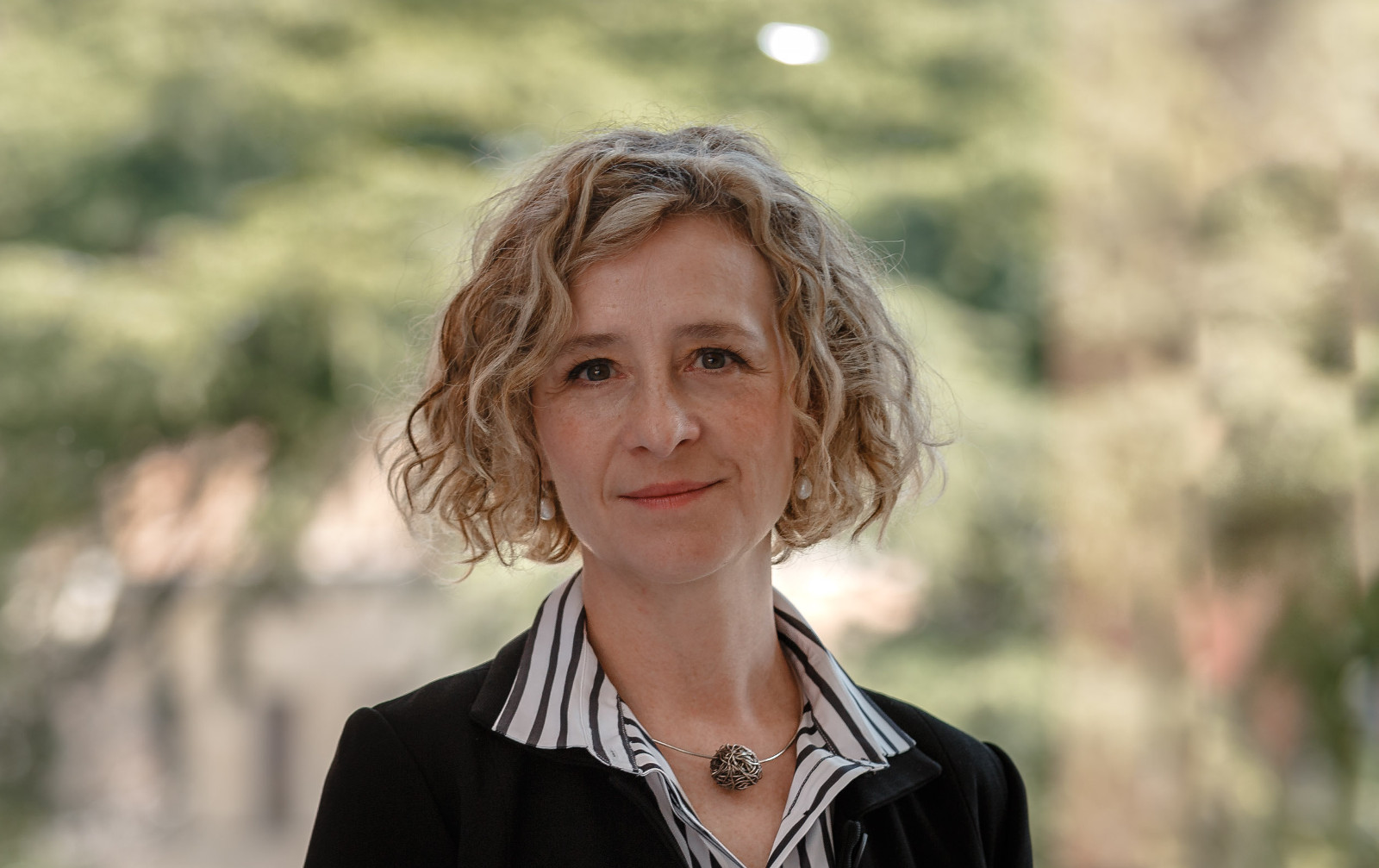Obs. de Bioética y Derecho
Máster en Bioética y Derecho
Cátedra UNESCO de Bioética
Contacto
- Observatorio de Bioética y Derecho
- Cátedra UNESCO de Bioética
- Universidad de Barcelona
- Facultad de Derecho
- Avenida Diagonal, 684
- 08034 Barcelona
- Tel. (+34) 93 403 45 46
- obd.ub@ub.edu
- Máster en Bioética y Derecho
- Tel. (+34) 93 403 45 46
- master.bd@ub.edu
RSS del Observatori de Bioètica i Dret UB
-
Dra. Gemma Marfany, nombrada secretaria de la Comisión de Bioética de la Universidad de Barcelona
 La Dra. Gemma Marfany, Catedrática de Genética, Microbiología y Estadística y miembro del Observatorio de Bioética y Derecho (OBD) de la UB, ha sido nombrada secretaria de la Comisión de Bioética de la Universidad de Barcelona (CBUB) por el Vicerrector de Investigación Dr. Domènec Espriu, después del cese a petición propia del Dr. Albert Royes, quien ha llevado a cabo esta función los últimos once años.
La Dra. Gemma Marfany, Catedrática de Genética, Microbiología y Estadística y miembro del Observatorio de Bioética y Derecho (OBD) de la UB, ha sido nombrada secretaria de la Comisión de Bioética de la Universidad de Barcelona (CBUB) por el Vicerrector de Investigación Dr. Domènec Espriu, después del cese a petición propia del Dr. Albert Royes, quien ha llevado a cabo esta función los últimos once años.La Comisión de Bioética de la Universidad de Barcelona (CBUB) se constituyó el año 1996 ante la necesidad de evaluar proyectos de investigación que se presentaban en las diversas convocatorias nacionales e internacionales. La Comisión se creó con el apoyo del entonces Vicerrector de Investigación Dr. Màrius Rubiralta a iniciativa de la Dra. María Casado, que actuó como secretaria de la misma durante trece años, hasta que el Dr. Royes se hizo cargo en 2009.
-
"Intention to vaccinate against COVID-19 in Australia"
As the COVID-19 pandemic continues, we eagerly await the arrival of safe and effective COVID-19 vaccines. However, the success of any vaccination programme depends on high vaccine acceptance and uptake.
-
"Associations between phone mobility data and COVID-19 cases"
Understanding factors that affectthe spread of severe acute respiratory syndrome coronavirus 2 (SARS-CoV-2) is crucial for mitigating the impacts of COVID-19. Hamada Badr and colleagues1 found a strong correlation between phone mobility data and decreased COVID-19 case growthrates, making the explicit assumption that phone mobility data serves as a proxy for social distancing.
-
Ponencia "El tratamiento de datos en investigación en salud: la función de los CEI"
 El día 29 de septiembre de 2020 se celebra la VIII Jornada Científica de la Fundació Salut Empordà, con el objetivo de dar la oportunidad a los profesionales de compartir información sobre su campo, así como conocer las inquietudes relacionadas con el progreso del conocimiento médico y sociosanitario y su aplicación práctica.
El día 29 de septiembre de 2020 se celebra la VIII Jornada Científica de la Fundació Salut Empordà, con el objetivo de dar la oportunidad a los profesionales de compartir información sobre su campo, así como conocer las inquietudes relacionadas con el progreso del conocimiento médico y sociosanitario y su aplicación práctica.La Dra. Itziar de Lecuona, subdirectora del Observatorio de Bioética y Derecho (OBD), profesora del Máster en Bioética y Derecho y del Departamento de Medicina de la UB, participa en la Jornada con la Ponencia "El tratamiento de datos en investigación en salud: la función de los CEI".
-
"Consumo comprueba el etiquetado y publicidad de productos ibéricos a la venta para evitar fraudes"
Según el tipo de alimentación y manejo del animal, los productos serán de bellota, de cebo de campo o de cebo.
-
"Cuando el ritual de la muerte es virtual: las nuevas estampas mexicanas en tiempos de pandemia"
La vida y la muerte han cambiado para mexicanos en Estados Unidos, en Sinaloa y el Istmo de Tehuantepec. Las familias, las iglesias y las funerarias han adaptado las ceremonias más sagradas.
-
"Human rights parables for a post-pandemic world"
Before the COVID-19 pandemic laid bare the structural inequalities across societies, there were diverging parables in human rights. One narrative identified the populist challenge to human rights and juxtaposed it with the cosmopolitan ideal of a multi-lateral order. An alternative narrative viewed populism as the symptom of democratic failure more than the cause and argued that the crisis of legitimacy facing the neoliberal, multilateral order was inextricably connected to a world where capitalist democracies have become “mere façade democracies”, as Jürgen Habermas has asserted.
-
"Brazilian doctors condemn new rules on abortion"
Experts say that the new rules for health workers will discourage access to health services and increase the risk of unsafe abortion.
-
"Legal agreements: barriers and enablers to global equitable COVID-19 vaccine access"
Law can serve as both an enabler and a barrier to global health, equity, and justice.1 The impact of legal determinants of health on the COVID-19 pandemic is evident where law is being used as a mechanism to enable or prevent global equitable access to COVID-19 vaccines. Barriers to equitable access are partly driven by vaccine nationalism2 with governments seeking to use law to secure priority access to future vaccines through Advance Purchase Agreements (APAs) with vaccine manufacturers.
-
"COVID-19: a stress test for trust in science"
Peer Review Week is the annual celebration of the importance of peer review, running Sept 21–25. The theme this year is trust in peer review, a particularly appropriate focus during the COVID-19 pandemic.



